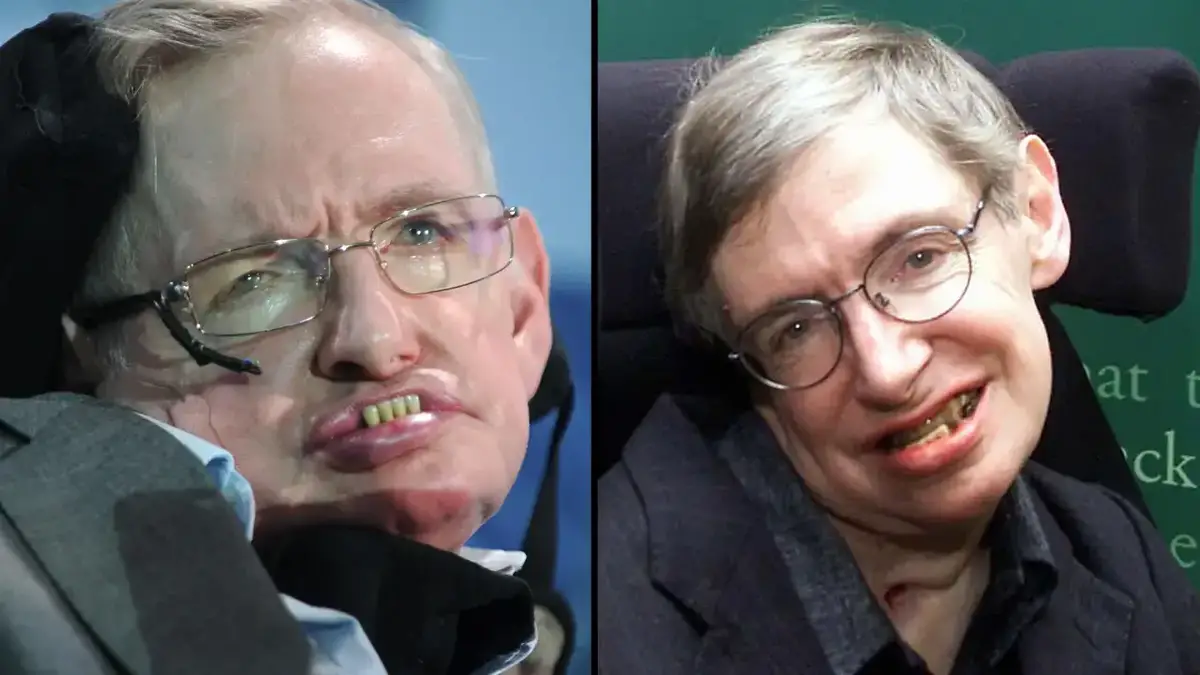
Celebrity
Hawking was an English theoretical physicist, cosmologist and author – he was widely viewed as one of the world’s smartest people.
At age 21, he was diagnosed with a form of motor neuron disease which gradually, over time, left him paralysed.
This wouldn’t stop him from being a commercial success – he produced several works of popular science, including the best-selling book ‘A Brief History of Time’.
Hawking passed away at age 76 in 2018 and unlike many people, the genius wasn’t afraid of dying.

During his time on Earth, Hawking warned that humanity faces extinction from numerous threats, such as climate change and nuclear war.
The genius also had his concerns when it came to the increasing use of AI.
In an interview with the BBC in 2014, Hawking theorised: “It would take off on its own, and redesign itself at an ever-increasing rate.
“Humans, who are limited by slow biological evolution, couldn’t compete, and would be superseded.”
He, alongside around 1,000 other experts, signed an open letter to the United Nations in 2015 in which concerns were raised about AI, per The Guardian.
Two years later, a year before his passing, Hawking told the magazine Wired: “I fear AI may replace humans altogether.”

His book ‘Brief Answers to the Big Questions’, published months after his passing, elaborated on the threat further.
“We may face an intelligence explosion that ultimately results in machines whose intelligence exceeds ours by more than ours exceeds that of snails,” the physicist warned.
“It’s tempting to dismiss the notion of highly intelligent machines as mere science fiction, but this would be a mistake – and potentially our worst mistake ever.”
Hawking also shared his concerns over our planet being invaded by aliens.
He told the Discovery Channel in 2010 (via BBC): “If aliens visit us, the outcome would be much as when Columbus landed in America, which didn’t turn out well for the Native Americans.
“We only have to look at ourselves to see how intelligent life might develop into something we wouldn’t want to meet.”
Among all the things Hawking flagged in his lifetime, he didn’t fear the afterlife – or apparently, lack of it.

In an interview with The Guardian in 2011, the physicist said he ‘wasn’t afraid of death’, but wasn’t in a hurry to die.
“I regard the brain as a computer which will stop working when its components fail,” he explained. “There is no heaven or afterlife for broken down computers; that is a fairy story for people afraid of the dark.”
In his book ‘Brief Answers to the Big Questions’, Hawking elaborated further: “There is no God. No one directs the universe.”
He continued: “For centuries, it was believed that disabled people like me were living under a curse that was inflicted by God.
“I prefer to think that everything can be explained another way, by the laws of nature.”
In his other work, ‘The Grand Design’, Hawking said: “Spontaneous creation is the reason there is something rather than nothing, why the universe exists, why we exist.
“It is not necessary to invoke God to light the blue touch paper and set the universe going.”